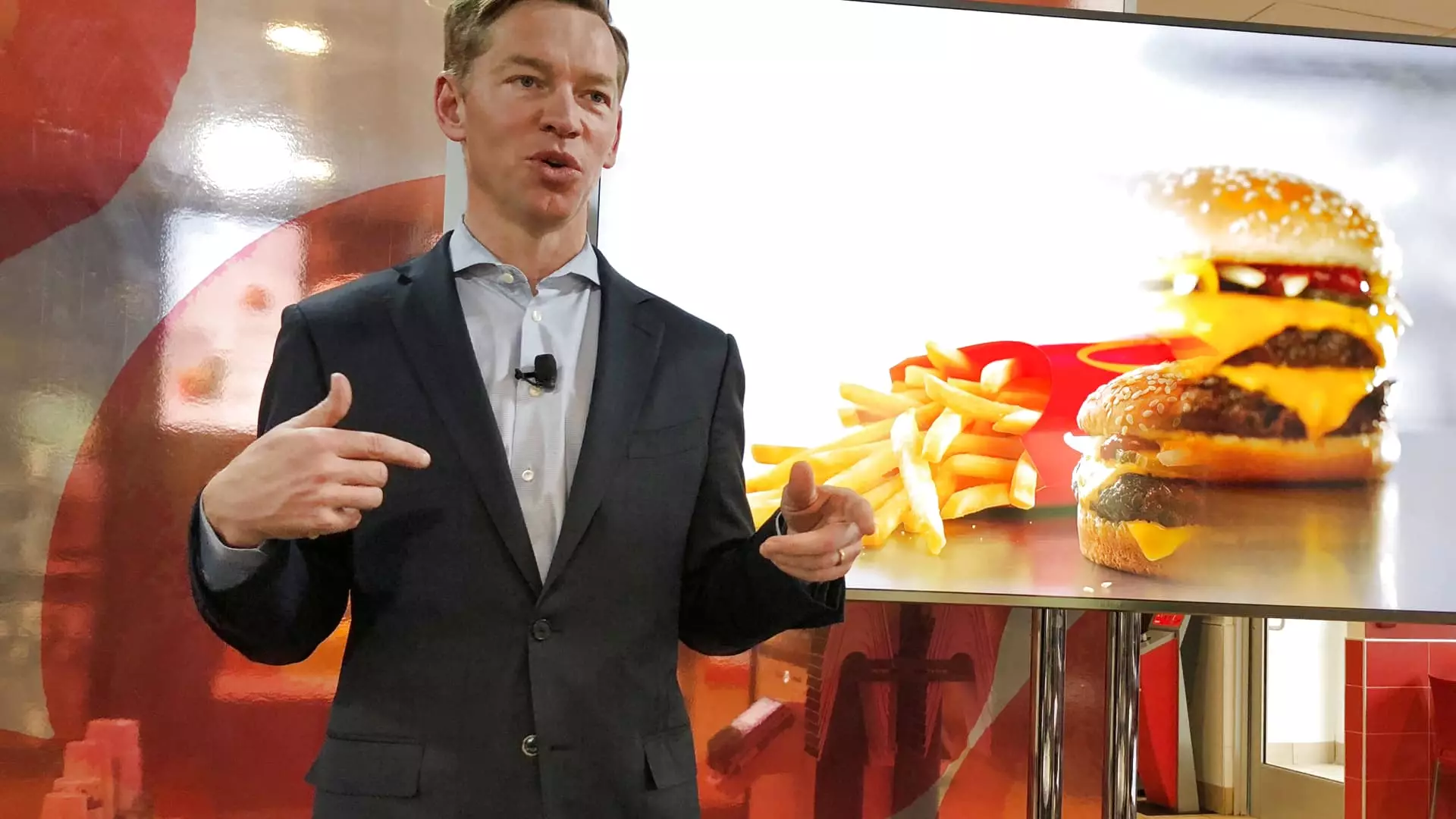In the fast-paced world of fast food, few events strike fear into the hearts of executives more than a foodborne illness outbreak. Recently, McDonald’s found itself grappling with a serious E. coli outbreak that health authorities linked to its popular Quarter Pounder burgers. In a public forum, CEO Chris Kempczinski attempted to reassure investors that the crisis is behind them, citing that the situation appears to be contained and the company is now looking forward. However, this assertion warrants a critical examination of both McDonald’s handling of the issue and the broader implications for the brand’s reputation and consumer trust.
Following the revelation of the E. coli outbreak, McDonald’s was quick to act, pulling the Quarter Pounder from approximately 3,000 restaurants across the United States. This swift response demonstrates a proactive approach to mitigate risk, but it also led to significant financial repercussions. As reported, the company experienced a dip in daily sales and traffic immediately after the outbreak was made public—a response that is both expected and alarming for a corporation reliant on consumer trust. CFO Ian Borden indicated a temporary decline in sales but remained optimistic about the company’s long-term recovery, emphasizing recovery efforts as a priority.
The cautious optimism expressed by executives reflects a classic dichotomy; while McDonald’s has a solid contingency plan in place, the restoration of consumer confidence is inherently uncertain. Recent figures reported a 0.3% increase in same-store sales compared to the previous year—a modest recovery, yet less than market analysts had anticipated. Given the global nature of McDonald’s operations, the ripple effect of such a public health scare is not just limited to U.S. sales; it also impacts McDonald’s performance in key international markets, leading to an overall decline of 1.5% in same-store sales.
A pivotal takeaway from the crisis is the importance of consumer trust, especially in industries where health and safety are paramount. Kempczinski’s public apologies and assurances that the company is “committed to making this right” reflect an understanding of the gravity of the situation. The company’s strategy going forward hinges significantly on restoring the image of the Quarter Pounder and the brand as a whole. The company suspended sourcing onions from its supplier involved in the outbreak—an effort to demonstrate accountability and prioritize customer safety. However, this move raises questions about the efficacy and thoroughness of their supply chain management prior to the outbreak.
Restoring consumer confidence doesn’t solely involve refraining from sourcing compromised ingredients; it requires transparent communication and a genuine commitment to customer safety. This includes continual updates on the investigation by the Food and Drug Administration and potential changes to food safety protocols. As more lawsuits emerge from outbreak victims, McDonald’s must not only address immediate concerns but also implement long-term changes to prevent future incidents.
Despite the recent challenges, McDonald’s has historically proven resilient in navigating turbulent waters. Through effective marketing strategies, expansion of the menu, and addressing consumer demand for value—such as the introduction of the $5 meal deal—they’ve often successfully revitalized interest even amidst adversity. This crisis, though significant, may serve as a turning point, pushing McDonald’s to reevaluate operational standards, supplier relationships, and communication strategies.
As the company prepares to lift the suspension on the Quarter Pounder in select locations, it faces an uphill battle to regain its former glory. The decision to return the burger sans slivered onions serves as an acknowledgment of their accountability without compromising their offerings. Ultimately, whether McDonald’s can restore customer trust and reclaim its market standing will depend on its capacity to translate these crisis management efforts into a lasting commitment to health and safety.
While McDonald’s leadership is eager to present a narrative of recovery and resilience following the E. coli outbreak, critical components of consumer trust and operational transparency remain at stake. The aftermath of such a public health crisis can significantly shape brand identity and customer loyalty. As the multinational corporation navigates this complex landscape, the actions it undertakes will have lasting implications on both its reputation and financial performance for years to come.

